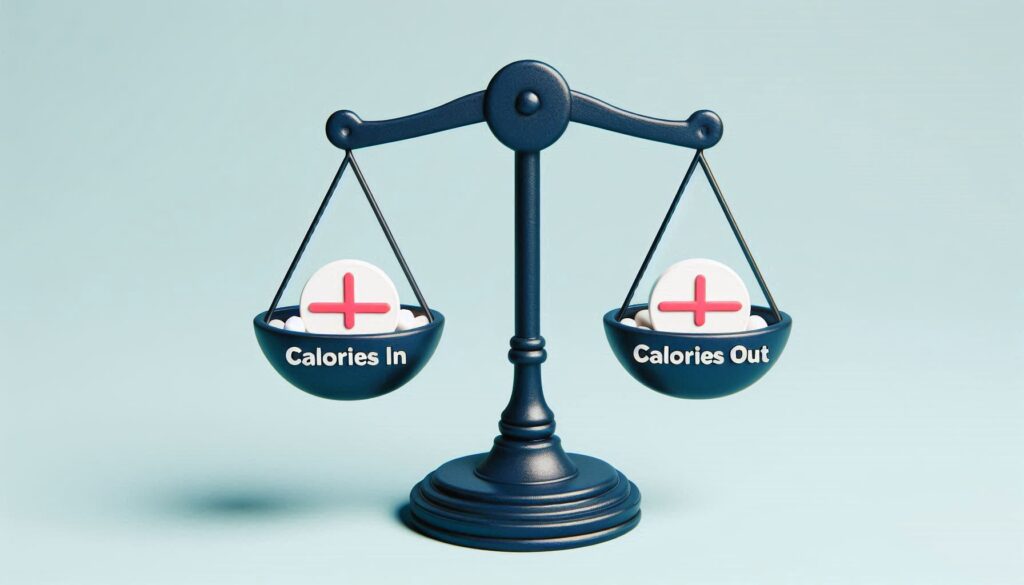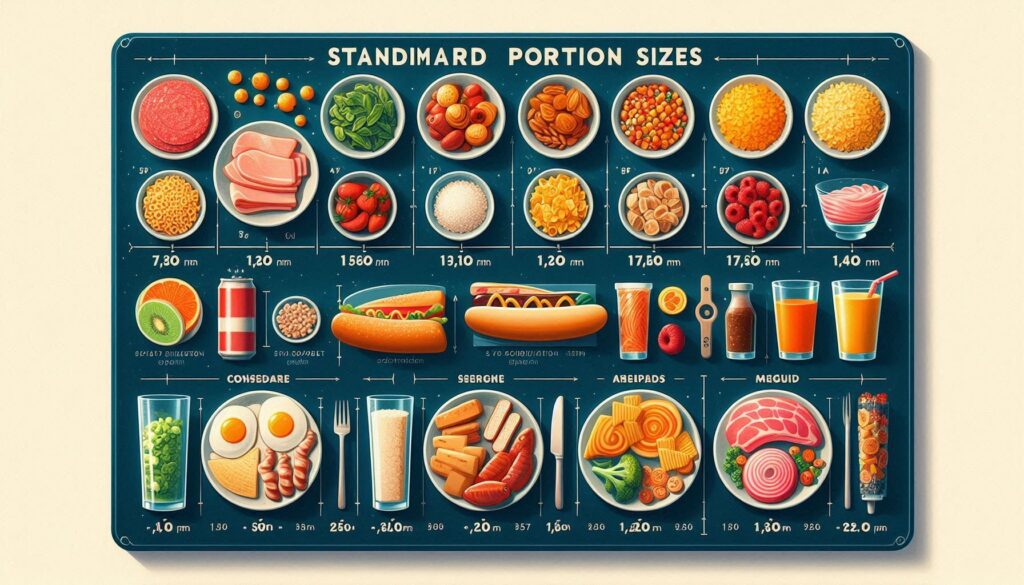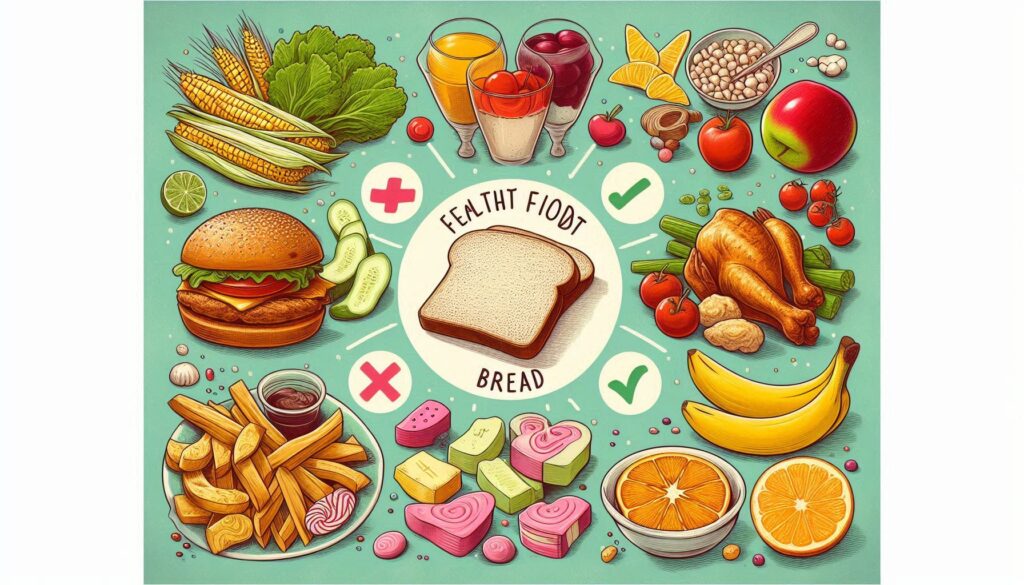
In a world bombarded with fad diets and quick-fix solutions, achieving and maintaining healthy weight management can feel like an uphill battle. It’s estimated that over 40% of adults in the United States are struggling with obesity, often turning to restrictive diets that offer short-term results but are unsustainable in the long run.
At SaziBox Health, we believe that healthy weight management isn’t about deprivation or extreme measures. It’s about nourishing your body, listening to its signals, and making sustainable choices that support your overall well-being.
This article will explore practical, science-backed strategies for achieving and maintaining a healthy weight. We’ll delve into the concepts of calorie balance, portion control, intuitive eating, and healthy food swaps, providing you with a roadmap to sustainable success.
Calorie Balance: The Foundation of Healthy Weight Management

The foundation of healthy weight management lies in understanding calorie balance. It’s a simple equation:
- Calories In: The energy you consume through food and drinks.
- Calories Out: The energy your body expends through physical activity and basic metabolic functions.
To lose weight, you need to create a calorie deficit (calories in < calories out). To maintain weight, you need to achieve calorie balance (calories in = calories out).
Tips for Maintaining Calorie Balance:
- Track your food intake: Use a food diary or app to monitor your daily calorie intake.
- Understand calorie density: Choose foods that are lower in calories but still filling, such as fruits, vegetables, and whole grains.
- Be mindful of liquid calories: Sugary drinks can add a significant amount of calories without providing much nutritional value. Opt for water, unsweetened tea, or sparkling water instead.
Interactive Element:
- Calorie Calculator: Use our online calorie calculator below to estimate your daily calorie needs based on your age, gender, activity level, and weight goals.
Real-Life Example:
John struggled with weight management for years, trying various fad diets with little success. After learning about calorie balance, he started tracking his food intake and making mindful choices. By creating a moderate calorie deficit and incorporating regular exercise, he was able to lose weight gradually and sustainably, improving his overall health and well-being.
Portion Control: A Practical Tool for Healthy Weight Management

Portion control plays a crucial role in managing calorie intake. Over the years, portion sizes have increased significantly, contributing to overeating and weight gain. By practising portion control, you can enjoy your favourite foods while staying within your calorie goals.
Tips for Portion Control:
- Use smaller plates: Studies show that eating from smaller plates can help you eat less without feeling deprived.
- Pre-portion snacks: Avoid eating straight from the bag or box. Measure out a portion into a bowl or container to prevent mindless snacking.
- Read food labels: Pay attention to serving sizes and the number of calories per serving.
- Listen to your body: Eat slowly and pay attention to your hunger and fullness cues. Stop eating when you’re comfortably full.
Expert Quote:
“Portion control is a key component of successful weight management. By being mindful of how much we eat, we can enjoy our favorite foods without overindulging.” – Sazib Miah
Intuitive Eating: A Sustainable Path to Healthy Weight Management

Intuitive eating is a non-diet approach to healthy weight management that focuses on listening to your body’s signals and honouring your hunger and fullness cues. It rejects the idea of restrictive diets and encourages a more balanced and sustainable relationship with food.
Tips for Practicing Intuitive Eating:
- Eat when you’re truly hungry: Avoid eating out of boredom, stress, or habit.
- Honour your fullness: Stop eating when you’re comfortably full, even if there’s food left on your plate.
- Make peace with food: Give yourself unconditional permission to eat all foods without guilt or judgment.
- Challenge the food police: Reject diet culture and its restrictive rules.
Interactive Element:
- Mindful Eating Exercise: Try this simple mindfulness exercise to increase your awareness of hunger and fullness cues.
Personal Story:
Maria struggled with yo-yo dieting for years, feeling trapped in a cycle of restriction and overeating. After discovering intuitive eating, she learned to trust her body and make food choices based on her internal cues. This approach helped her achieve a healthy weight and cultivate a positive relationship with food.
Healthy Swaps: Small Changes, Big Impact

Making small, sustainable changes to your diet can lead to significant improvements in your overall health and weight management.
Tips for Healthy Swaps:
- Whole Grains vs. Refined Grains: Choose whole-wheat bread, brown rice, and quinoa over white bread, white rice, and processed snacks.
- Lean Protein vs. Fatty Protein: Opt for grilled chicken or fish, beans, lentils, and tofu over fried foods and fatty meats.
- Water vs. Sugary Drinks: Replace soda, juice, and energy drinks with water, unsweetened tea, or sparkling water with a splash of fruit juice.
- Fruit vs. Candy: Satisfy your sweet tooth with fresh or frozen fruit instead of sugary treats.
Interactive Element:
- Healthy Recipe Ideas: Explore our collection of delicious and healthy recipes that incorporate these swaps!
Embrace a Sustainable Approach
Healthy weight management is a journey, not a destination. It’s about making sustainable lifestyle changes that support your overall well-being, not just chasing a number on the scale. By focusing on calorie balance, portion control, intuitive eating, and making healthy food swaps, you can achieve your weight goals and feel your best.
Remember:
- Be patient and kind to yourself: Sustainable change takes time.
- Celebrate your progress: Focus on the positive changes you’re making, no matter how small.
- Seek support: If you need guidance, consider working with a registered dietitian or healthcare professional.
- We’d love to hear from you! Share your experiences with healthy weight management in the comments below.
- Explore the other articles in our “Nourishing Your Whole Self” series for more tips on holistic nutrition and healthy living.
Let’s embrace a balanced and sustainable approach to nutrition and create a healthier, happier you!
References:
- National Institutes of Health
- Academy of Nutrition and Dietetics
- Tribole, E., & Resch, E. (2020). Intuitive Eating: A Revolutionary Program that Works. St. Martin’s Essentials.
Calorie Calculator
Estimate your daily calorie needs based on your age, gender, activity level, and weight goals.




[…] Healthy Weight Management: Sustainable Strategies […]
[…] Healthy Weight Management: Sustainable Strategies […]